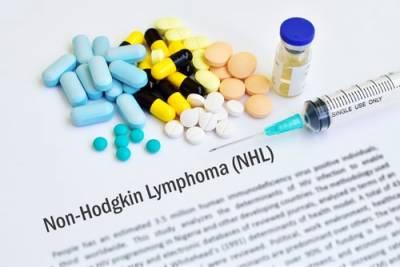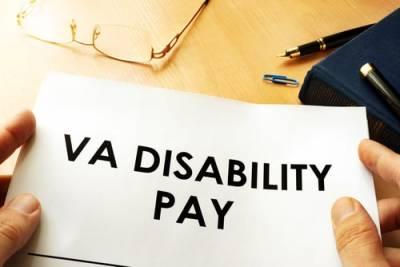
Recent Blog Posts
For Camp Lejeune Victims, Time Is of the Essence
 From 1953 to 1987, the water at Camp Lejeune was contaminated due to surface waste migration into groundwater that fed the Camp Lejeune Base’s wells. As a result of this contamination, servicemembers who were stationed there, their loved ones who lived with them, and those who worked on the Base were subjected to toxic levels of numerous chemicals during that time.
From 1953 to 1987, the water at Camp Lejeune was contaminated due to surface waste migration into groundwater that fed the Camp Lejeune Base’s wells. As a result of this contamination, servicemembers who were stationed there, their loved ones who lived with them, and those who worked on the Base were subjected to toxic levels of numerous chemicals during that time.
Although toxic exposure certainly can result in immediate health-related symptoms, the kind of exposure that occurred at Camp Lejeune most significantly resulted in the delayed onset of numerous medical conditions that have caused thousands of individuals great suffering. Unfortunately, delays in access to justice and compensation have only exacerbated the suffering of individual exposure victims and loved ones who have already been compelled to grieve the loss of victims gone too soon.
Because the Clock Is Ticking
Avoiding Scams Targeting Camp Lejeune Contamination Victims
 Due to legislation passed late last year, victims of the Camp Lejeune contamination crisis – and the surviving loved ones of those who have already died as a result of it – are now able to pursue compensation. Yet, just as was the case with emergency funds for business owners who were struggling due to Covid-19, where there is money to be had, scam artists abound. As a result, it is both heartbreaking and not surprising to learn that scam artists are now targeting the victims of the Camp Lejeune contamination.
Due to legislation passed late last year, victims of the Camp Lejeune contamination crisis – and the surviving loved ones of those who have already died as a result of it – are now able to pursue compensation. Yet, just as was the case with emergency funds for business owners who were struggling due to Covid-19, where there is money to be had, scam artists abound. As a result, it is both heartbreaking and not surprising to learn that scam artists are now targeting the victims of the Camp Lejeune contamination.
How Are These Scams Playing Out?
Because victims of toxic exposure at Camp Lejeune have banded together to file a class action lawsuit, the legal process of pursuing compensation is progressing in very specific ways. Although victims are working with their own attorneys to pursue compensation, the lawsuit itself is streamlined in ways that most injury-related lawsuits are not. Scam artists are taking advantage of this streamlined approach by disguising their efforts as activities related to the class action itself.
Non-Hodgkin's Lymphoma and the Camp Lejeune Water Contamination Crisis
 Beginning in the late 1950s and running through most of the 1980s, an estimated 1 million people were potentially exposed to toxic chemicals in the water at and around Marine Corps Base Camp Lejeune in North Carolina. These chemicals have been linked to a variety of illnesses, including non-Hodgkin’s lymphoma, a type of cancer that affects the body’s lymphatic system. Today, we will break down what non-Hodgkin’s lymphoma is and how it is different from other types of cancer, as well as explain what compensation may be available to those affected by the Camp Lejeune water crisis.
Beginning in the late 1950s and running through most of the 1980s, an estimated 1 million people were potentially exposed to toxic chemicals in the water at and around Marine Corps Base Camp Lejeune in North Carolina. These chemicals have been linked to a variety of illnesses, including non-Hodgkin’s lymphoma, a type of cancer that affects the body’s lymphatic system. Today, we will break down what non-Hodgkin’s lymphoma is and how it is different from other types of cancer, as well as explain what compensation may be available to those affected by the Camp Lejeune water crisis.
What Is Non-Hodgkin's Lymphoma?
Non-Hodgkin's lymphoma (NHL) is a type of cancer that affects the body's lymphatic system—the part of the immune system responsible for fighting infection and disease. There are several different types of NHL, including diffuse large B-cell lymphoma (DLBCL), follicular lymphoma (FL), mantle cell lymphoma (MCL), Burkitt's lymphoma, and marginal zone lymphomas. The symptoms vary depending on which type of NHL a person has, but common symptoms include swollen or painless lumps in your neck or armpit, night sweats, fatigue, weight loss, fever, and chills. If you suspect you may have NHL or any other illness related to Camp Lejeune water contamination, it is important that you seek medical attention right away.
The Camp Lejeune Water Contamination Crisis: What You Need to Know in 2023
 For many years, people living or working at Camp Lejeune in North Carolina were unknowingly exposed to contaminated water. The extent of this contamination is still being uncovered, but it is important that those affected are aware of the situation and know what to do if they have suffered any negative health effects. Today, we will discuss the major causes of the water contamination, who may be affected by it, and how to reach out for help if you or a family member feel like you have experienced any ill effects as a result of it.
For many years, people living or working at Camp Lejeune in North Carolina were unknowingly exposed to contaminated water. The extent of this contamination is still being uncovered, but it is important that those affected are aware of the situation and know what to do if they have suffered any negative health effects. Today, we will discuss the major causes of the water contamination, who may be affected by it, and how to reach out for help if you or a family member feel like you have experienced any ill effects as a result of it.
The Causes of Contamination
For more than 30 years, toxic chemicals were released into the groundwater at Camp Lejeune. These contaminants included solvents such as trichloroethylene (TCE), perchloroethylene (PCE), benzene, vinyl chloride, and other hazardous substances associated with dry-cleaning operations and industrial activities. This contamination caused serious health risks for those on base or in the surrounding area who drank or used the contaminated water.
Are you a Camp Lejeune Contamination Survivor Seeking Justice?
 It is hard to believe but veterans and their families are still trying to obtain redress for the serious health injuries caused by Camp Lejeune’s toxic water more than three decades ago. Well, you now have the chance to ask the federal government for restitution under the new legislation. A personal injury lawyer can assist you in navigating governmental red tape and legal obstacles to help you get the compensation you are entitled to even if you currently receive some form of Veterans Administration benefits.
It is hard to believe but veterans and their families are still trying to obtain redress for the serious health injuries caused by Camp Lejeune’s toxic water more than three decades ago. Well, you now have the chance to ask the federal government for restitution under the new legislation. A personal injury lawyer can assist you in navigating governmental red tape and legal obstacles to help you get the compensation you are entitled to even if you currently receive some form of Veterans Administration benefits.
More Benefits May be Available to You
Back in 2012, veterans with qualifying medical problems were granted limited benefits. Camp Lejeune veterans and employees could only receive specific benefits, such as healthcare from facilities affiliated with the VA and they were unable to file a lawsuit against the U.S. government. Adding insult to injury, more than a third of veterans who applied for benefits had their disability claims delayed or denied by the VA. Thousands of claims were also processed late or incorrectly.
Confused about Filing a Camp Lejeune Lawsuit and VA Claim?
 Are you wondering if you should file another Camp Lejeune claim? Should you consider legal action if you or a loved one became ill from toxic water at the military base? You have two years from when the new law went into effect in August this year to start the process of filing a lawsuit. So far, 14,000 VA claims have been filed, and nearly one million veterans and employees at Camp Lejeune may be eligible. Many have been fighting for years to get healthcare benefits and compensation for serious illnesses developed after exposure to toxic water at the base, but the process can be overwhelming.
Are you wondering if you should file another Camp Lejeune claim? Should you consider legal action if you or a loved one became ill from toxic water at the military base? You have two years from when the new law went into effect in August this year to start the process of filing a lawsuit. So far, 14,000 VA claims have been filed, and nearly one million veterans and employees at Camp Lejeune may be eligible. Many have been fighting for years to get healthcare benefits and compensation for serious illnesses developed after exposure to toxic water at the base, but the process can be overwhelming.
If you are wondering whether you should file a claim, consider speaking with a Camp Lejeune injury lawyer for guidance.
Lawsuit Requirements
The Camp Lejeune Justice Act of 2022 gives veterans, their dependents, and employees of the base the ability to file a federal lawsuit against the government for the harm sustained due to contaminated water at the base from August 1, 1953, to December 31, 1987. You are entitled to seek compensation for such things as medical expenses, lost wages, and pain and suffering.
Parkinson’s Disease: A Chronic Health Condition Linked to Camp Lejeune’s Toxic Water
 The Veterans Administration only recently added Parkinson’s disease to the list of serious health problems linked to the toxic water at Camp Lejeune. Parkinson's disease is the second-most common neurodegenerative disease. Nearly one million people are living with Parkinson's in this country. Unfortunately, this number is only expected to rise and there is no cure. As the illness progresses, people experience everything from tremors to psychosis. If you or a loved one worked or served at the base, you deserve compensation for this chronic health condition.
The Veterans Administration only recently added Parkinson’s disease to the list of serious health problems linked to the toxic water at Camp Lejeune. Parkinson's disease is the second-most common neurodegenerative disease. Nearly one million people are living with Parkinson's in this country. Unfortunately, this number is only expected to rise and there is no cure. As the illness progresses, people experience everything from tremors to psychosis. If you or a loved one worked or served at the base, you deserve compensation for this chronic health condition.
What is Parkinson’s disease?
Parkinson’s disease is a brain disorder that causes uncontrollable movements that worsen over time. These include shaking, stiffness, and difficulty with balance. Parkinson’s disease will eventually affect a person’s ability to swallow, walk, and talk. They may experience memory problems, sleep issues, depression, and fatigue.
Did Camp Lejeune Water Cause Your Baby’s Birth Defects?
 Soon-to-be parents decorate rooms and expect their bundle of joy with anticipation and joy. But that excitement may have been short-lived if you were at Camp Lejeune and learned that your baby would be born with birth defects. The annual hospitalization cost in the United States related to birth defects is more than $2.6 billion. Camp Lejeune babies did not have a fighting chance because their mothers were unknowingly exposed to extremely high levels of chemicals normally found in paint thinner, gas, and oven cleaners which caused catastrophic injuries.
Soon-to-be parents decorate rooms and expect their bundle of joy with anticipation and joy. But that excitement may have been short-lived if you were at Camp Lejeune and learned that your baby would be born with birth defects. The annual hospitalization cost in the United States related to birth defects is more than $2.6 billion. Camp Lejeune babies did not have a fighting chance because their mothers were unknowingly exposed to extremely high levels of chemicals normally found in paint thinner, gas, and oven cleaners which caused catastrophic injuries.
Poisoned Water
The water at the base contained extremely harmful solvents and cleaning solutions, including perchloroethylene (PCE) and trichloroethylene (TCE). Between August 1953 and December 1987, the levels of these chemicals were thousands of times higher than is considered safe by the EPA. It is estimated that more than one million people were exposed to the toxic water at Camp Lejeune and thousands of them were women.
Can Camp Lejeune Water Cause Infertility?
 Your dreams of ever having children or growing your family have shattered after the toxic water at Camp Lejeune left you infertile. You have been dealing with irreversible reproductive health problems and indescribable emotional pain like so many other military service members and their families. We want you to know there is a way to get compensation for the serious health problems you suffered.
Your dreams of ever having children or growing your family have shattered after the toxic water at Camp Lejeune left you infertile. You have been dealing with irreversible reproductive health problems and indescribable emotional pain like so many other military service members and their families. We want you to know there is a way to get compensation for the serious health problems you suffered.
Toxic Water
Camp Lejeune has been linked to serious health conditions, including female infertility. While research continues, a CDC study found higher cases of infertility at the base than at any other comparable military base. Veterans were at a higher risk for infertility due to their exposure to volatile organic compounds including:
-
Trichloroethylene (TCE) – a metal degreaser and cleaner
What Can I Do If My Camp Lejeune Claim Was Mishandled?
 Regrettably, many veterans now have cancer and other serious health conditions from contaminated water at Camp Lejeune. Adding insult to injury, numerous mistakes by the Veterans Benefits Administration (VA) involving Camp Lejeune disability claims have left veterans empty-handed. New legislation offers renewed hope but we understand that it may be hard for you to believe that things will be different this time.
Regrettably, many veterans now have cancer and other serious health conditions from contaminated water at Camp Lejeune. Adding insult to injury, numerous mistakes by the Veterans Benefits Administration (VA) involving Camp Lejeune disability claims have left veterans empty-handed. New legislation offers renewed hope but we understand that it may be hard for you to believe that things will be different this time.
Claims Denied and Underpaid
Thousands of veterans were left out in the cold after their claims were flat-out denied. Others are receiving incorrect benefit payout amounts. A new report shows some startling facts about why and how claims were mishandled:
-
Nearly 40 percent of the Camp Lejeune disability claims were processed incorrectly.
-
Thousands were denied prematurely often because no request for supporting evidence was made.
 Free Camp Lejeune Case Review
Free Camp Lejeune Case Review






